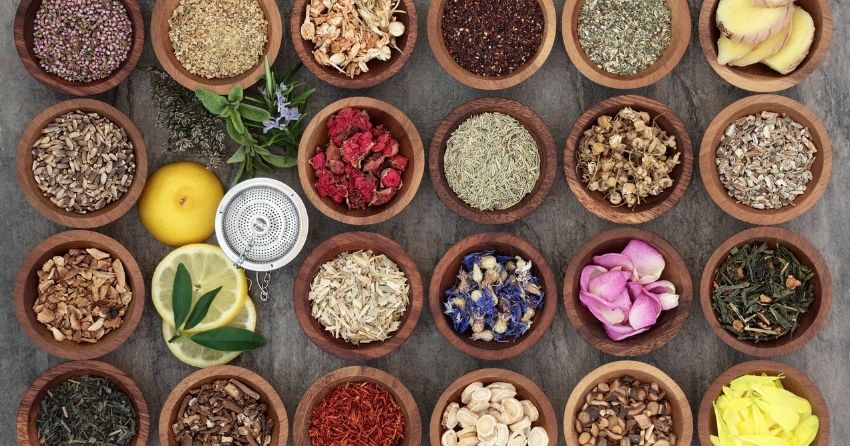Corylin, a Chinese Herb-Derived Compound, Extends Lifespan in Aged Mice

As one of the major contemporary alternative medicines, traditional Chinese medicine continues its influence in Chinese communities and has begun to attract academic attention in western medicine. In the long history of traditional Chinese medicine, single herbs and complex formulas have been suggested to increase lifespan. However, identifying single molecules responsible for lifespan extension has been challenging.
In a study published in Nature Communications, Taiwanese researchers collected a list of traditional Chinese medicines with potential longevity properties from pharmacopeias — books containing directions for identifying compound medicines. Researchers from National Taiwan University and Chang Gung University found that one compound known as corylin from the plant Psoralea corylifolia extended the replicative lifespan in yeast. Corylin ameliorated cellular senescence – a state of replicative and growth arrest linked to aging – in cultured human cells and extended lifespan in mice fed a high-fat diet.
Taken together, these findings suggest that corylin may promote longevity in not only yeast but in mammals. “We are the first group to report that P. corylifolia and one of its major constituents, corylin, extend lifespan in various models,” wrote Tong-Hong Wang and colleagues.
Hidden in Plain Sight: A Traditional Chinese Medicine Compound Extends Lifespan
Acupuncture and Chinese herbal remedies date back at least 2,200 years. The earliest known written record of Chinese medicine is the ancient text the Huangdi Neijing (which translates to The Yellow Emperor's Inner Classic) from the 3rd century BCE. In the long history of Chinese medicine, some traditional Chinese medicines have been reported to have lifespan-extending benefits. Thus, traditional Chinese medicines are great candidates for screening and verifying their life-extending properties.
Here, Tong-Hong Wang and colleagues collected a list of traditional Chinese medicines with potential longevity properties from pharmacopeias. To choose traditional Chinese medicines candidates for validation, they searched the National Health Insurance Research Database (NHIRD) as well as several pharmacopeias, such as the Compendium of Materia Medica, Qianjinyaofang, Shennong Materia Medica, and Huangdi Neijing, for TCMs that may increase lifespan and are used to treat age-associated conditions that affect bone, muscle, and brain health.
After cross-comparison of these traditional Chinese medicines and consultation with clinical doctors, 33 single herbs and six herbal formulas were chosen as candidates. Budding yeast represents one of the simplest and widely adopted model organisms for studying aging. Relative to other systems, yeast lifespan can be easily quantified. The Taiwanese researchers systematically screened these traditional Chinese medicines and identified a single herb, P. corylifolia, that increases lifespan in yeast. Next, twenty-two pure compounds were isolated from P. corylifolia. One of the compounds, corylin, was found to extend the replicative lifespan in yeast.

Corylin Has Anti-Aging Effects in Mammals
In mammals, cellular senescence is proposed to cause physical dysfunction and exacerbate the aging process. It is suggested that loss of DNA repair capacity, chromosome instability, and telomere erosion cause cell senescence. Additionally, senescent cells secrete compounds that broaden the impact by triggering the senescence process in the ambient tissue. Finally, senescent cells deteriorate organ function and trigger aging-related disease, even raising the risk of death. In human umbilical vein endothelial cells, corylin ameliorated cellular senescence.
A previous study revealed that high-fats diet induce metabolic stress and accelerate senescent cell accumulation to increase the risk of death further. Wang and colleagues demonstrated that corylin promotes longevity in aged mice under metabolic stress. In mice fed a high-fat diet, corylin extended lifespan, increasing survival by 20% at 102 weeks (about 70 human years). The Taiwanese researchers propose that corylin likely contributed by improving physical functions, reducing metabolic stress, and maintaining functional tissue markers.

Can Corylin Kick Aging Where it Counts?
This isn’t the first time that the senior authors Shu-Huei Wang and Chin-Chuan Chen took a look into corylin, having published several studies on the compound that indicate possible anti-aging effects. The Taiwanese researchers had recently shown that corylin inhibits blood vessel cell inflammation and reduces atherosclerosis in mice and supports healthy weight management and insulin regulation in obese mice. In addition, they also showed that corylin supported liver health in mice with a high-fat diet.
Corylin has shown promise in the hands of other researchers as well. For example, a study out of Hong Kong demonstrated that corylin has the potential to be developed as a novel pro-bone-forming agent in targeting for the treatment of bone-related conditions. Therefore, corylin could be a natural agent that supports healthy aging with effects on several organ systems. However, these studies into this compound isolated from traditional Chinese medicine are merely the beginning, as there are currently very few studies, most of which do not which touch on corylin’s effects on human health. As of now, sufficient clinical evidence of the effects of corylin on humans is simply unavailable. Convincing clinical trials are needed to confirm the effectiveness of corylin and other traditional Chinese medicines.
As the authors conclude, "We have proposed an efficient method for screening and validating beneficial compounds to extend lifespan, with strong evidence showing the lifespan extension properties of corylin in yeast and cell models and improving health and survival by facilitating stress resistance in high-fat diet mice.”
References:
Wang TH, Tseng WC, Leu YL, et al. The flavonoid corylin exhibits lifespan extension properties in mouse. Nat Commun. 2022;13(1):1238. Published 2022 Mar 9. doi:10.1038/s41467-022-28908-2





